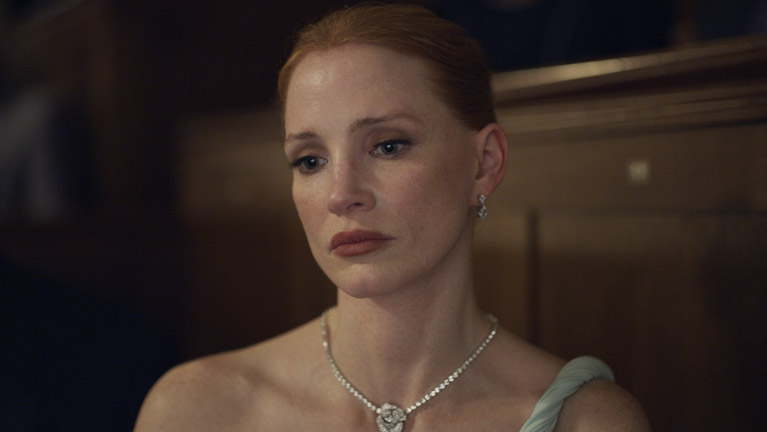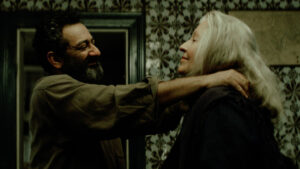A film by Michel Franco
With: Jessica Chastain, Isaac Hernández, Rupert Friend, Marshall Bell, Eligio Meléndez, Mercedes Hernández, Tatiana Ronderos
Believing his lover will support him, a young Mexican ballet dancer crosses the border to pursue his dreams in San Francisco. But as ambition and love clash with harsh realities, he must face the true nature of their relationship.
Our rate: **
Michel Franco no longer seeks to follow in Haneke’s footsteps, to delay revealing his political message, or to use complex, stylized staging concepts to capture the viewer, while also provoking him. More recently, his filmography has focused on themes close to his own, such as crime on Mexican beaches, the loss of reason and memory, and questions of identity. He takes it upon himself to speak to the viewer in the first degree, to be accessible, and to compose his films by starting with the action, in the dramatic sense of the term: the events, and then proposing an observation of their impact on the various characters. Dreams is no exception to this new rule, as Franco seeks to deal linearly, head-on, with the issue of anti-Mexican racism, which is becoming increasingly present under the impetus of the right-wing Trumpist movements, with illegal immigration, as in Europe, the focus of increased attention from certain media, who see it as the number-one problem from which many structural problems would flow, starting with the happiness of every long-established American. Franco‘s concept is to invent a fairy tale, rather like Sean Baker‘s, in which a young Mexican dancer, eager to live in the United States, experiences an intense love affair with a wealthy young woman, the daughter of a leading figure in cultural funding. The Mexican director begins his story with a moment of great tension: Mexicans who have just crossed the U.S. border are locked in a truck, banging on the walls to get out, thus laying the first stone of the equation put on screen: to immigrate is to take an immense risk. The story then calls up other tensions, whether linked to the carnal desire between the two lovers, whom almost everything opposes, starting with age and social condition, or to the ambient social tension, but also the more perfidious one of societal acceptance, of the difference between a discourse of position, an image conveyed, and a profound feeling. Franco, surprisingly, questions in parallel, with a certain efficiency and a frontality that characterizes his writing, the foundations of racism, but also of the domination of one class over another. The second third of the film tends to stagnate on the few motifs, and Franco‘s attempts to air out his narrative – or intensify it – with choreographed dance scenes, don’t work, not even to feed the fairy tale that every viewer wonders when it’s going to spin out of control, and in what form. Dreams reverses the daydream, raising new questions about revenge, broken love and betrayed personal ambition, in a rushed manner but, as is another hallmark of Michel Franco’s cinema, with intensity that piques the potentially drowsy viewer. Jessica Chastain sometimes seems a little behind her own character and not pushing it far enough, somewhat encumbered by the very concept of the script, gradually slipping from a fiery love story into a more complex theorization of contrary impulses, though she seems very invested in the project and in her character. The whole certainly lacks a certain amount of truth, if not real life, and third-party elements that might have complemented the point of view developed, Dreams, though easily identifiable as a Michel Franco film, remains a little Michel Franco, unlikely to cause a Berlin deflagration or even reach Trump’s ear.










Be First to Comment